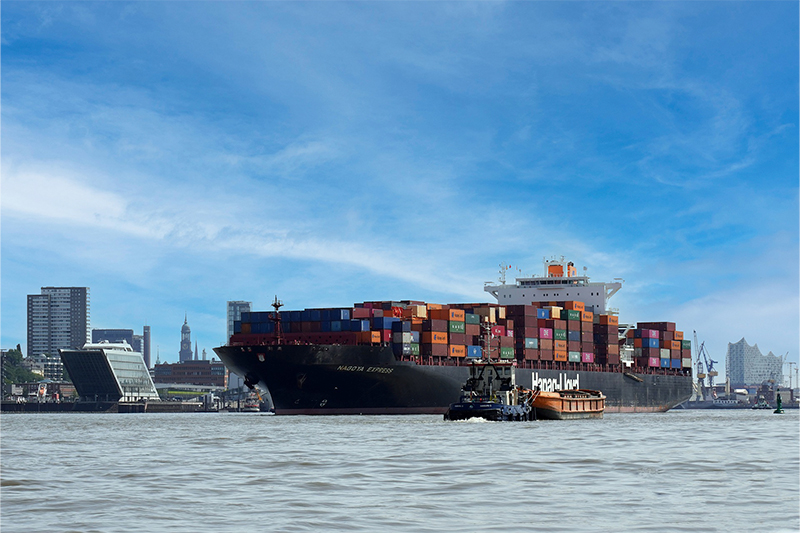
Understanding the Impact of Geopolitical Risks
Mapping the geopolitical risks ahead is as crucial as preparing for the next natural disaster. Geopolitical risks can significantly impact the global economy, politics, and society. This blog explores the geopolitical risks ahead and what resilience planners and responders should consider. One devolving risk to the US is signaled by Biden’s administration’s declared end to the COVID-19 national emergency declaration on May 11th.
However, coming out of the pandemic, there are multiple emerging issues for resilience practitioners to be concerned about. For example, as I wrote about in Tips for Civil Unrest Events, a timely risk assessment will continue to be vital to understanding what incidents are on the horizon. The instability of many aspects affecting business resilience are outlined below and could have far-reaching impacts on the global economy in the years ahead. You may have heard the term recently and wondered: what does it all mean? I’ll break it down for you here.

2023 Risk Horizon Scanning
Geopolitical risks arise from various factors, including political tensions, economic competition, and social unrest. Some of the potential geopolitical events that could pose the most significant risks in 2023 include the following:
Political instability in significant economies: Political instability in major economies, such as the United States, China, or Europe, could significantly impact global markets, trade, and investments.
Escalating tensions between significant powers: Tensions between major powers, such as the US and China or Russia and NATO, could lead to increased military posturing or even conflict, creating significant geopolitical risks.
Heightened global terrorism: Terrorist attacks or the threat of terrorism could lead to increased security measures and restrictions on travel and trade, impacting global business operations.
Climate change and natural disasters: Climate change and natural disasters could have significant geopolitical impacts, including displacement of populations, resource scarcity, and increased conflict over access to resources.
Pandemics or other health crises: Pandemics or other health crises could significantly impact global health and economic systems, potentially leading to political and social instability.
These are just a few examples of potential geopolitical risks. Individuals, businesses, and governments need to stay informed about global events and monitor potential threats to prepare for any potential impacts. In our roles, we can take the lead to inform our organizations and partners with business partners to understand what risks could affect operations.

Negative Impacts on Business Resilience
Of course, mapping the geopolitical risks ahead includes understanding threats and hazards. Then, it includes categorizing them in terms of their potential criticality to impact personnel or interrupt business operations negatively. Geopolitical risks can significantly impact businesses operating in those affected regions or industries. So, developing a risk register and assigning criticality to events that could negatively affect the business is essential.
Some potential impacts of geopolitical risks on businesses include supply chain disruptions and market volatility. Additionally, regulatory changes and political instability can lead to social unrest, potential conflicts, and changes in government policies. All of which can have significant impacts on business operations and revenue. Finally, cybersecurity threats like cyber espionage, hacking, or sabotage are all events that can have important functional and reputational repercussions.
Overall, geopolitical risks can pose significant challenges for businesses, making it essential for companies to monitor these risks and develop contingency plans to mitigate their potential impacts. Businesses that can adapt to changing geopolitical risks can position themselves for success in the long term.

Geopolitical Risks By Type
Geopolitical risks refer to the uncertainties and potential conflicts that arise from political and economic relationships between nations. These risks can significantly impact global markets, trade, investments, and social and political stability. As mentioned, some of the ones of most significant concern this year are economic instability. This can lead to decreased business confidence, reduced investment, and decreased economic growth. Another is political instability. A risk of this type can create uncertainty and affect the stability of individual nations and the global community.
An aligned risk is trade disruptions. Potentially disruptive to international trade, it leads to supply chain disruptions and higher costs for goods and services. This can affect businesses and consumers alike. Not surprisingly, global power dynamics changes can shift the power balance between nations. This can significantly affect international politics and economics, including changes in alliances, military actions, and resource distribution. Overall, geopolitical risks can impact the global economy, political stability, and social well-being. Individuals, businesses, and governments need to monitor these risks and take steps to mitigate their potential impacts.

What You Can Do to Mitigate Geopolitical Risks
Mitigating geopolitical risks to your business requires a proactive approach and a thorough understanding of the risks involved. Here are some steps you can take to reduce geopolitical risks to your business:
Monitor geopolitical events: Stay informed about geopolitical events and potential risks that could impact your business. Use reliable sources of information and consider the potential impacts of these events on your business operations.
Diversify your supply chain: Relying on a single supplier or source of materials can leave your business vulnerable to disruptions caused by geopolitical risks. Diversify your supply chain to minimize the impact of any one supplier being affected by geopolitical events.
Develop contingency plans: Develop or refresh contingency plans that outline how your business will respond to potential geopolitical risks. This should include measures to mitigate the impact of disruptions to your supply chain, changes in regulations or policies, and other potential threats.
Maintain strong relationships: Build and maintain strong relationships with suppliers, partners, and other stakeholders in your industry. This can help you stay informed about potential risks and work together to mitigate their impacts.
Consider geopolitical risks in your business decisions: Consider geopolitical risks when making decisions about investments, product development, and other business activities. This includes considering the potential impacts of changes in regulations, tariffs, and other policies that could affect your business.
Consider geopolitical insurance: Consider obtaining geopolitical insurance to protect your business against potential losses due to geopolitical risks, such as political violence, expropriation, and currency inconvertibility.
Overall, mitigating geopolitical risks requires a proactive and strategic application. By leveraging these steps, you can help protect your business against the potential impacts of geopolitical risks.

Ongoing Geopolitical Risk Assessment
We are living in a time of worldwide instability. Coming out of the global pandemic, it is understandable that governments, political factions, and economic forces are jocking to advance their interests. Taking the time to assess the risk to your company and mapping the geopolitical risks ahead will mitigate the shocks of any unexpected turns of events. Continually aligning with your organization’s goals while determining what external factors can negatively impact them is always a worthy exercise.
In my last blog, Fighting A Fear Of Failure, I outlined that one of a professional’s greatest tools is ongoing stress testing of business units’ capabilities. Whether through tabletop, functional, or scenario testing, exercising and reducing exposure is a great asset. Not only does it unearth process gaps, but more importantly, it builds confidence and aids an organization in orienting to crisis response. Like any other business process, it becomes rusty from misuse if it is not leveraged. With the current volatility and worldwide interconnectedness of most commerce, it makes sense to use all the tools at our disposal.
I always like to hear from you, so please share your perspectives in the comment section below.
Did you know?
Disaster Empire blogs contain embedded links to source materials, articles of interest, videos, books, and training I recommend. Just click on the blue embedded link to access the resource.
